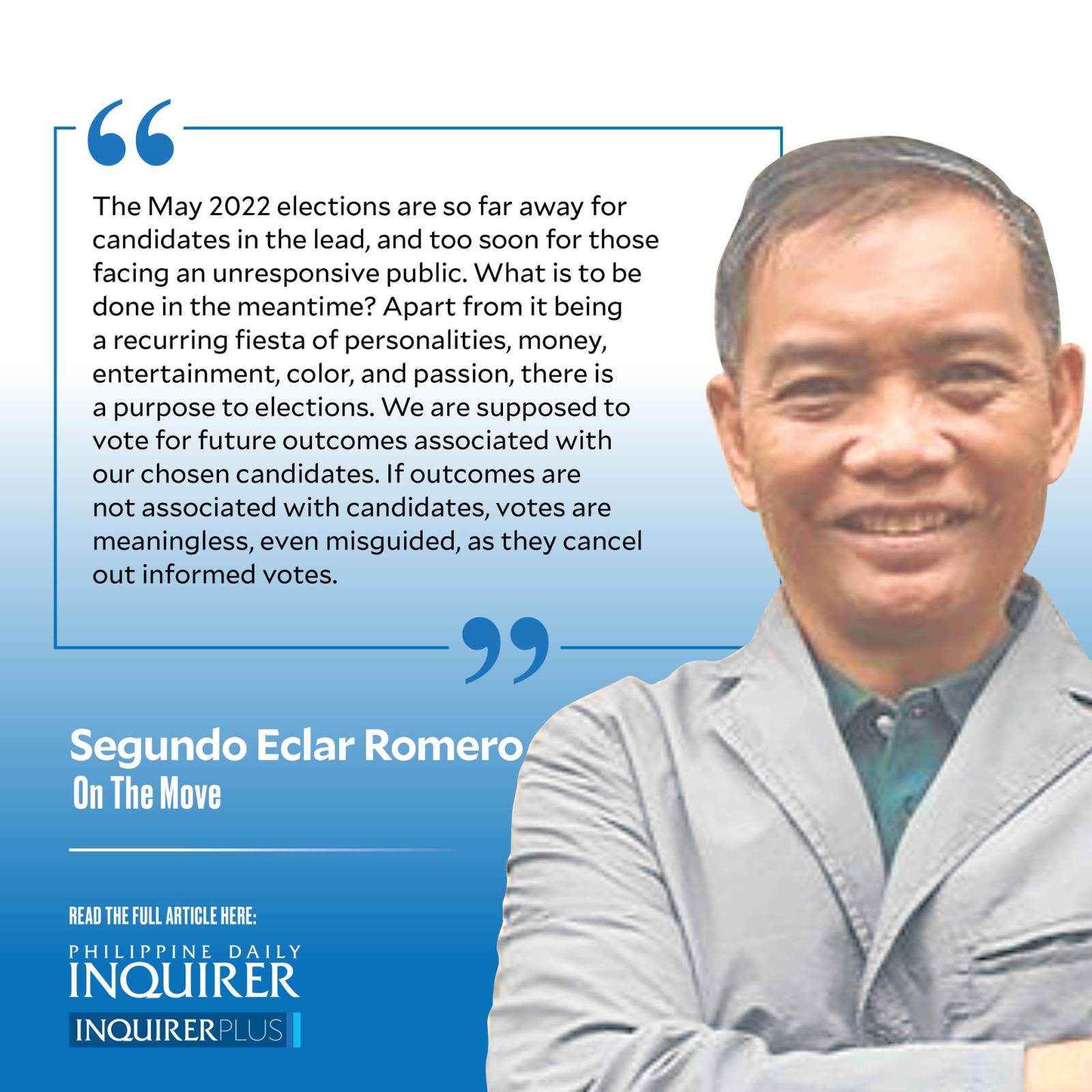4 post-election scenarios

The May 2022 elections are so far away for candidates in the lead, and too soon for those facing an unresponsive public. What is to be done in the meantime?
Apart from it being a recurring fiesta of personalities, money, entertainment, color, and passion, there is a purpose to elections. We are supposed to vote for future outcomes associated with our chosen candidates. If outcomes are not associated with candidates, votes are meaningless, even misguided, as they cancel out informed votes.
Visualizing future outcomes is difficult unless done with other people who share our interests or situation, like our family or community. Two or more heads are better than one. Group estimates of future outcomes are more stable and better informed.
There are different outcomes for different future situations. One technique we can use is how futurists in the Institute for the Future visualize four scenarios. We might ask, over the next 6 to 12 years, are we facing (1) a growth scenario where inclusive national development, democracy, and unity grow incrementally?; (2) a constraint scenario where we are stumped by an overwhelming obstacle or condition to further progress?; (3) a collapse scenario where we suffer a precipitous, survival-threatening decline?; or (4) a transformation scenario where major internal or external changes present critical strategic frameworks of opportunities or risks to the nation?
The likelihood of the scenarios depend on “drivers” that we now sense at present, which include (1) the COVID-19 pandemic, whether it continues to debilitate the nation or it significantly diminishes; (2) major natural disasters, especially earthquakes or supertyphoons; (3) food security crises due to drought or pestilence occasioned by climate change; (4) energy crises due to loss or instability in major sources (e.g., Malampaya); (5) major prolonged terrorist attacks against critical infrastructure in Metro Manila; (6) heightened military tensions involving the Philippines in the West Philippine Sea; (7) a coup d’état (e.g., “No-El”) against the government; (8) renewed and expanded secessionist and insurgency actions in the country; (9) unfettered plunder and top-level corruption in government; (10) increased insidious foreign control of the economy; (11) mass return of OFWs to the country; and (12) increased internal violence including the assassination of government officials, judges, and media persons.
Unfortunately, many of these drivers are adverse. We are hard put to imagine what positive development can pleasantly surprise us over the next decade or so that does not come from painstaking, deliberate, strategic hard work by the government and nation.
Sure we can discover oil, but that only replaces the diminishing production of Malampaya. Smart nation technology has done wonders for countries like Estonia, but the prerequisite is a smart government that knows what it is doing. May 2022 is our chance, but it apparently cannot materialize because many Filipinos thirst for instant gratification and are locked on the mirage of a Marcosian pot of gold.
Let us stop to think about where the candidates offering themselves to be president, vice president, senators and Congress representatives, and local chief executives and councilors fit in in these scenarios and drivers. What similar situations did they face in the past, and how did they perform? Which ones will likely perform better in the probable future scenarios we have in mind?
The four above-mentioned scenarios at the national level will not translate into the same individual or family outcomes. The elections are actually more critical for the majority D and E sociodemographic segments of the population. Poorer families have lesser assets, capabilities, and opportunities and are generally more at risk under adverse scenarios. Rich people have plenty of choices and are more “scenario-indifferent.” When push turns to shove, many of them will simply fly to another country.
Discussing future scenarios with our family, neighborhood, or community will be like inoculating your family or neighbors against voter ignorance. We might say, but it is too darn difficult! But let’s take a perspective from our now familiar seesaw battle against COVID-19. What we need is herd immunity. It seems like an uphill climb and unreachable, but working for it is much better than biting our nails as we await the results of the May elections. Painstaking is the way to go. No pain, no gain.
—————-
doyromero@gmail.com
















